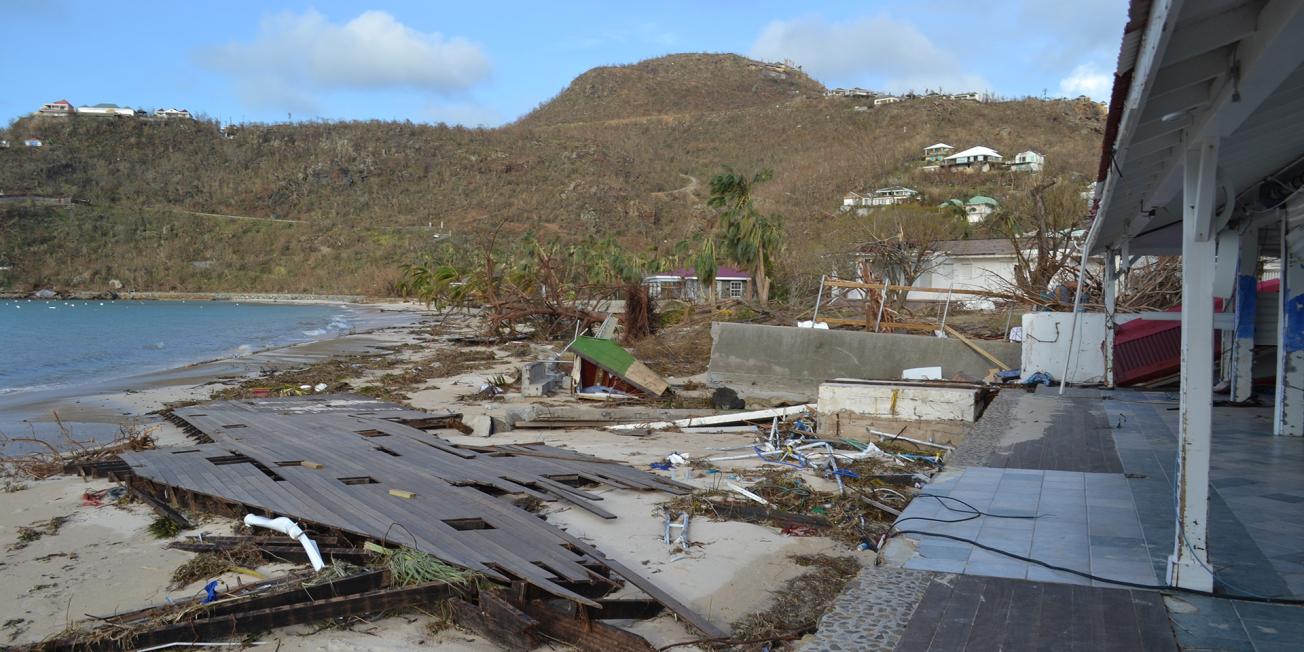
The Orléans neighbourhood on Saint-Martin, 13 September.
© BRGM
5 September 2017: Hurricane Irma approached the Caribbean. Its diameter was more than 500 km and the winds it produced exceeded 300 km/h.
All crisis management stakeholders on the islands of Saint-Martin and Saint-Barthélemy in the West Indies mobilised right from the start of this exceptional episode. State and civil defence departments put these areas on "purple alert"; experts and engineers provided the technical resources for monitoring the crisis; residents were quickly warned to stay indoors and did all they could to help those most affected.
Despite this mobilisation, the toll in the region was catastrophic, with dozens of deaths and millions of euros worth of damage to buildings and infrastructure.
For a global and integrative approach to knowledge
In December 2017, a few months after the devastating arrival of Hurricane Irma, the French National Research Agency decided to launch a call for projects focusing on issues of vulnerability, reconstruction, recovery and resilience. Four projects were funded to analyse the feedback from the areas affected by Irma.
Increasing the adaptation capacities of isolated areas, better describing the socio-economic characteristics of exposed assets, anticipating crises in order to deal with them as effectively as possible: these points were all identified to improve the management of future disasters in the overseas regions. More generally, it is necessary to review the way crisis and risk management are integrated.
This is all the more urgent as climate change is clearly increasing the number of events due to intense natural phenomena, such as rain, floods or high temperatures, which are themselves potential sources of technological and industrial disasters as shown by the "cascade" effect observed in Fukushima in 2011.
New risk science
To cope with the increasing number of such situations, it is necessary to consolidate, stimulate and coordinate national risk research efforts. Building a comprehensive and integrative approach to knowledge that combines earth sciences, climate and environmental sciences, engineering, information science and human and social sciences is becoming a major challenge.
These objectives are at the heart of a new initiative, a new priority research and equipment programme (PEPR) named IRiMa (for "Integrated risk management for more resilient societies in an era of global change"), coordinated by BRGM, CNRS and Grenoble-Alpes University.






